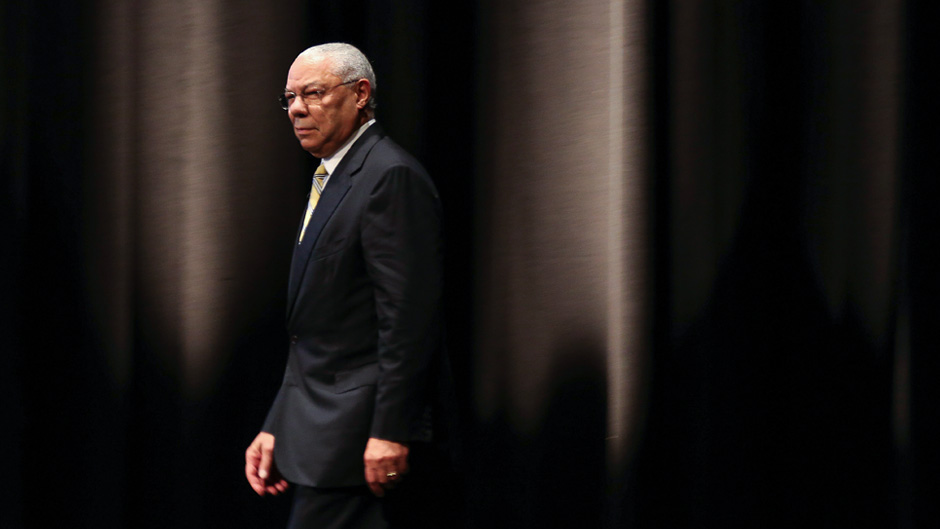He was the son of Jamaican immigrants, born in the Upper Manhattan neighborhood of Harlem and raised in the Bronx.
But from those humble beginnings, Colin Powell rose to the highest levels of the military and government, becoming the nation’s first Black national security advisor, chairman of the Joint Chiefs of Staff, and U.S. secretary of state.
Powell, who served three Republican presidents, became a four-star general, and was a two-time recipient of the Presidential Medal of Freedom, died on Monday from complications of COVID-19. He was 84.
He was fully vaccinated but had suffered from a few ailments, including multiple myeloma, a type of blood cancer that affects white blood cells.
Members of the University of Miami community remember Powell as a trailblazing figure who helped shape the country’s national security, a role model whose stature and standing reached such heights that many thought he would become the first Black President of the United States.
“Secretary Powell was truly an American hero,” said Rudy Fernandez, senior vice president for public affairs and communications at the University and chief of staff to President Julio Frenk, who was special assistant to the president in the George W. Bush administration. “He [Powell] will forever be remembered for his dedication to our country and for his exemplary character. I was one of the many young staffers in the Bush White House in awe of him, and I will always be inspired by his leadership and integrity.”
Powell’s reputation took a hit after the evidence he presented during a 2003 United Nations Security Council speech to justify the Iraq War turned out to be false. But that didn’t matter to many. “He will be remembered as one of our great Americans,” said President Joe Biden, who Powell endorsed during his run for the White House.
“A trailblazer, a hero, and a good man” is how University of Miami School of Law alumnus Anta Plowden remembers Powell.
“Gen. Powell served as an inspiration to me as a military officer, the child of Caribbean immigrants, and a Black man,” said Plowden, an attorney in the Miami office of the international law firm White and Case who was a decorated U.S. Air Force combat pilot with multiple deployments to Iraq and Afghanistan.
“Even though he was an Army officer, I believe he truly embodied the Air Force core values of integrity first, service before self, and excellence in all we do,” Plowden said. “In a day and age where people are so cynical of our leaders, Gen. Powell stood as a reminder of what real leadership looks like. He will be missed.”
For young students of color who aspire to public service, Powell’s life is a shining example of just how far they can ascend, said Landon Coles, president of Student Government and the student trustee on the University’s Board of Trustees.
“His service was an example that the upper echelons of American government are not reserved for the few, but open to any individual whose heart for service and work ethic is strong enough,” Coles said. “His loss may be felt for a time; but his legacy, specifically in building international coalitions, will last for years to come.”
Daniel Gottlieb, a student in the School of Law and a first lieutenant in the the U.S. Marine Corps, described Powell as an American icon who paved the way for future service members for generations to come.
“His spirit of perseverance and his will to improve the country he loved can be perfectly summed up by this quote, ‘None of us can change our yesterdays but all of us can change our tomorrows,’ ” said Gottlieb, president of the Military and National Security Law Society. “The world lost a hero and will mourn his legacy for years to come.”

